Sitra’s Megatrends 2020 report highlights an increase in relational power as a megatrend. Relational power refers to interaction and networks becoming increasingly significant alongside conventional types of power, such as economic and political power. Above all, the increase in relational power has been accelerated by the internet and social media. Reaching large audiences and organising collective activities no longer necessarily require large organisations or the power brought by money; in practice, anyone can create local or global networks and influence through them. An excellent silent example of this is the international K-pop community that organised a campaign to book a large amount of tickets for a Trump rally through social media channels. In the end, the rally was half-empty, because the K-pop fans’ intention was to weaken Trump, not support him.
The coronavirus pandemic has imposed new kinds of challenges on societies, both internally and externally. The megatrends Megatrend A general direction of development consisting of various phenomena and entailing widespread change, such as the ecological sustainability crisis. Megatrends are often considered to occur at the global level and the development is often considered to continue in the same direction. Open term page Megatrend have not, however, gone away. Nevertheless, significant shifts can be seen in the weight of the trends, both in the short and long term. In this third article of the Impacts of the Coronavirus series, we think about what the tensions of relational power highlighted by the Megatrends 2020 report look like in the new state of the world brought about by the coronavirus.
Centralised decisions vs broad engagement
The tension between centralised decision-making and extensive engagement has grown stronger in the coronavirus crisis, and this tension has become even more topical. In the middle of the coronavirus crisis, decision-makers have been expected to take swift measures, and people have accepted them without demands for hearings or other forms of engagement.
In the Megatrends 2020 report, the tension was thought to have become visible as the result of the ecological sustainability crisis, in particular. In order to keep on the 1.5-degree emission reduction path and achieve the ambitious climate goals, we need the capability to make decisions swiftly. On the other hand, for the transition to an ecologically sustainable society to be just and acceptable to people, broad engagement and building a shared understanding of the situation is required – in other words, making swift decisions while broadly listening to and engaging people. These two requirements create quite a tension, especially in terms of the use of time.
What was thought to have happened as a result of the ecological sustainability crisis has happened at a much quicker rate because of the coronavirus crisis. During the acute phase of the crisis, centralised decision-making was broadly accepted by the population. Now, we are in a situation of gradually lifted restrictions, but there is not yet any view into what this will mean from the point of view of decision-making. Is there a risk that the technocratic model that depends on experts and senior decision-makers will prevail, even for years? What consequences would this have for democracy? In a situation where 50 countries have declared a state of emergency or enforced emergency powers legislation, particular attention should be paid to the states of emergency being temporary and having an expiry date. In addition, decision-makers must be assessed continuously and transparency must be demanded. As is one of the basic principles of political science: “Sovereign is he who decides on the exception”.
In Finland, the state of emergency ended when the Emergency Powers Act was withdrawn on 15 June, but in Hungary, for example, the situation is very much different. Hungary renounced the rule of law and, with it, democracy under the guise of the coronavirus crisis (30 March). According to Freedom House, Hungary is no longer a democracy. Hungary slipping away from democracy has been the steepest plunge in the history of Freedom House’s Nations in Transit study published since 1995. The state of democracy is worsening in Europe, and in its neighbouring regions as well. Twenty-five years ago, there were more democratic countries in Europe than now. Freedom House blames the EU as partly responsible for the situation; in practice, it has not punished Poland and Hungary in any way for their continued measures that aim to degrade the rule of law.
“For the European Union – including us in Finland – the slipping of one of its member states back into dictatorship is an even bigger setback than Brexit”, writes Petri Tuomi-Nikula, a member of the Updating Democracy project and formerly an ambassador to Hungary. Tuomi-Nikula reminds us that the Finnish Government proposed to link the principle of the rule of law to EU subsidies last summer during Finland’s Presidency of the Council of the European Union.
Liberal democracy is also felt to be under threat more extensively because of the coronavirus pandemic. Several NGOs, legislators, Nobel Laureates and about 500 former political leaders have signed the Sweden-based International Institute for Democracy and Electoral Assistance’s (International IDEA) call to defend democracy. The call states that it is not a coincidence that the current pandemic began in a country where the free flow of information is stifled and where the government punished those warning about the dangers of the virus. The warnings were seen as spreading rumours harmful to the prestige of China. When voices of responsible citizens are suppressed, the results can be deadly, not for just one country but for the entire world. It is only through democracy that societies can build the social trust that enables them to survive in a crisis, the call states.
Rally-round-the-flag is a typical phenomenon in a crisis
According to an attitude survey conducted by the Finnish Business and Policy Forum EVA, 89 per cent of the respondents supported the government’s measures in the crisis. The people have rallied round the flag. Rallying round the flag refers to the popularity of political leaders tending to rise during international crises or wars. It seems that this also happened in Finland during the coronavirus crisis.
According to international trust barometers, the change is significant. The years-long trend of trust shifting from official authorities and experts to peers has reversed as a result of the coronavirus crisis, at least for the time being. For the first time in 20 years, states are the most trusted party, according to the Edelman Trust Barometer that covers responses from 11 countries. Trust also in institutions other than the state is also at a record-high level. The trust gap between different levels of education has, however, remained big. Highly educated people trust institutions more than the less educated.
Anu Kantola, Professor of Communications, writes that decision-makers and experts can no longer withhold information to avoid confusion. The limitations of scientific information from the point of view of decision-making have in fact become more clearly evident during the pandemic. Understanding of the fact that science-based information can be used for justifying very different solutions has increased. When the matters being resolved are complex and new, there might not be peer-reviewed scientific information available yet. On the other hand, decisions derived from research are not often unequivocal. During the coronavirus crisis, the media and decision-makers have, however, been required to be able to make swift decisions and communicate about them in an uncertain situation. This has resulted in a tension between the nature of scientific information and quick but knowledge-based decision-making.
According to politics researcher David Runciman, the view that politics is taking a break is too narrow. We may have been used to thinking about politics as a struggle between political parties, but the bigger question in democracies is how governments use the uniquely extensive power granted to them by voters, and how voters respond to that use of power. Runciman reminds us that even though the pandemic is a global crisis, nation states play a very big role and people’s experience of the crisis varies a lot based on which country’s citizens they happen to be. No two states will share the same situation; the decisions made and when they are made will have a big impact on the outcomes.
Accelerated transition to digital-age democracy?
The situation caused by the coronavirus in which possibly the most highly valued form of civic participation has been to sit at home and keep a safe distance is in conflict with the ideal of extensive participation. The use of public space is an important part of politics. Demonstrating on the streets is one of the most important ways of expressing the intensity of demands, even in established democracies. Everyone has a single vote in an election, but if they want to emphasise their messages, they can engage in “street politics”. This spring, however, all people-led political activity, from climate strikes to tractor marches, took a break or went online. How can the power of the masses be demonstrated and how can motivation to engage in civic participation be maintained when public space is out of use?
In the best-case scenario, exceptional situations can provide an opportunity to develop digital democracy. Even though the attitude towards the potential of digital democracy has been sceptical for a long time, mainly because of the risk to information security, Nesta, the UK’s innovation foundation, is one of those who have suggested that the development of participatory democracy should not be abandoned even during the coronavirus age; on the contrary, the growth in Teams/Zoom preparedness is a good foundation for building new forms of participation in government as well.
Elections have been postponed on every continent, but at the same time progress has also been seen in the adoption of digital participation methods. The UK Parliament successfully organised its Prime Minister’s Questions for the first time partly online, the European Parliament has switched to online voting and the Scottish Parliament has also arranged a virtual question time. What was expected to take years has happened in days, with the coronavirus requiring the deployment of remote tools in decision-making during the past weeks and months. There is no shortage of digital methods. There are solutions for brainstorming, developing proposals and people’s participation in decision-making.
What is the situation in Finland when it comes to the use of digital tools as part of decision-making and engagement of people? With the coronavirus, it has at least become evident that the Finnish Parliament’s preparedness for digital voting and remote work has not been up to date. In particular, this became evident when the government switched over to remote working following a case of exposure to coronavirus in early May. Two ministers had been in the same room with a person exposed to the coronavirus. A plenary session had to be cancelled, because there was no way to organise it remotely, and the potential to deploy remote voting was subsequently investigated by the parliament. The Updating Democracy publication also highlighted the parliament’s working methods: “One of the interviewees aptly stated that the newest things in the country pass through the Parliament, but they are handled using the country’s oldest working methods.” In the best-case scenario, the coronavirus can force both the parliament and the rest of the public sector to develop methods to keep in touch with the people. Digital tools already make a lot of things possible, and technologies that facilitate user-oriented opinion-forming and allow organisation to become a fixed part of people’s day-to-day lives also cause pressure.
Interest in new forms of participation and their use has clearly increased in Finland during the past few decades. Citizens’ initiatives in particular have turned out to be a very popular channel of participation. In spite of this development, Finland continues to be a symptomatically representative democracy in which elected representatives are ultimately responsible for political decisions. The new forms of participation have yet to bring about decisive changes in the basic nature of the political system. According to some studies, they are also afflicted by the same level of participation as conventional participation in elections: people who are already active make use of them more often than others.
The technological and cultural prerequisites for making social participation easier and more tempting do exist. There is also increasing pressure in this direction because turnouts have been declining for a long time, and only a small fraction of Finns are inspired by influencing through political parties. The critical question is: does one truly dare to share power in a new way or are the new forms of participation reduced to trendy supplements of the representation-based system that can be easily forgotten amid crises?
Street politics during the coronavirus times
Millions of people demonstrated against police violence and racism across the world after George Floyd was killed during an arrest in Minneapolis. The need for demonstrating and making oneself heard became so big that people have defied curfews and assembly bans. When rage, disappointment, fear and centuries of oppression were crystallised in Floyd’s fate, other forms of exerting influence were inadequate. People had to demonstrate their intensity on the streets. “Demonstrating is physical, it makes things happen. To my mind, it is difficult to see a time when we will move to only demonstrating online,” says Nikki Yeboah, an activist and Assistant Professor at San Jose State University. Almost three times as many African-Americans than Caucasians have succumbed to the coronavirus in the US. The coronavirus has afflicted the vulnerable and poor areas the most in many other countries as well. In the UK, people from the BAME (black, Asian and minority ethnic) community were over-represented by COVID-19 infections, and in Sweden, being of an immigrant or lower socio-economic background increases the probability of falling ill.
According to Barack Obama, the importance of demonstrations lies in raising public awareness, highlighting injustice and making those in power uncomfortable. In American history, it is through demonstrations and civil disobedience that the political system was made to notice minorities in general, Obama writes. One key difference between democratic countries and those that are authoritarian is having the ability to protest against those in power through a demonstration and to be able to return home safely afterwards. There are elections in authoritarian systems as well (even if they are not very free), but there is no right to demonstrate without consequences. If our streets remain empty for a long time, this will affect people’s views of democracy. Digital democracy is not the same thing, says politics researcher Ivan Krastev. It is important for people to stand side by side opposing or supporting things that matter to them. Naturally, there are many other ways of having an impact than attending demonstrations.
Freedom of speech vs influence through information
A lot of false information has been spread and disseminated about the coronavirus. In fact, there is an “infodemic”, or information epidemic, taking place alongside the pandemic. Fake news, conspiracy theories, graphs taken out of context and health hogwash have flourished in this exceptional situation. Source criticism, the big picture and constructive joint discussion must be the ways to reduce the confusion stirred up by them, Sitra’s Mikko Dufva writes in his blog article. Approximately half of the respondents to the global Edelman Trust Barometer feel that it has been difficult to find trustworthy information during the coronavirus crisis.
The conspiracy theory that 5G networks built for mobile connections are spreading the coronavirus has been particularly popular. Several 5G base stations have been burned down in the UK, the Netherlands and Sweden, for example, partly due to the belief that they are contributing to the spread of the coronavirus. A telecommunications tower was also burned down in Pedersöre in the Ostrobothnia region of Finland, but there has not been certainty about the motive for the act. According to journalist Johanna Vehkoo, seeing causal relationships in matters that are not factually interconnected is typical of conspiracy theories. Vehkoo states that concerning situations, fear and uncertainty are likely to increase the popularity of conspiracy theories.
Social media giants are at the hotspot of this crisis, too
The coronavirus times have once again given rise to questions about freedom of speech and data companies’ responsibility for public discussion forums. Public discussions increasingly take place on privately owned forums – such as Twitter and other social media platforms – whose incentives significantly steer the direction of the discussion. For example, what is the responsibility of these platforms when incorrect information about the coronavirus is widely spread via them? Can they just plead to not being responsible for the accuracy of content and blame the original author? On the other hand, if the platforms tighten their rules concerning publishing, one could ask what their legitimacy for censoring public discussions is. Will we end up in an era of privatised censorship?
This has been a frequent debate with regard to the statements issued by President Donald Trump. Facebook’s founder Mark Zuckerberg stated in March that he does not approve of false information, such as President Trump’s claim that bleach is a cure for the coronavirus. However, nothing happened when Trump continued to give questionable advice concerning the use of UV light and disinfectant as a cure. The majority of data companies have based their operating methods on the assumption that governments and health officials can be trusted. When the false information comes from the White House, data companies are in a tight spot.
The situation is not, however, a new one. Discussion about the responsibility of data companies and social media platforms has been going on for years, and the pace has picked up throughout Trump’s presidency. A turning point came in late May when Twitter labelled a tweet from Trump with a fact check for the first time. The content of the tweet concerned mail-in ballots in the US.
Twitter, a service with 330 million users, did not previously have the resources or the will to engage in large-scale fact checking. The direction has, however, changed during the pandemic. Twitter updated its terms of service in March, and they now include a clause that the service will take down messages that are in conflict with official sources’ views on global public health. This applies also, and especially, to heads of state. Soon after the new treatment of Trump’s tweet, Twitter took down tweets by the Brazilian president Jair Bolsonaro and Venezuelan president Nicolás Maduro. Twitter justified the deletion by explaining that the content of the messages regarding safety distances being unnecessary and fake cures for the coronavirus can cause such extensive damage that a mere mention of the need for a fact check was not sufficient.
Checking the president’s facts means that technology companies are becoming more akin to publishers, who continuously make decisions on what they publish and what they do not. Whether Twitter is ready for this kind of a role remains unclear. It is too early to say whether reining in false information will also continue on other social media platforms, but the direction is promising after years of haggling.
Social media companies have become increasingly important during the pandemic because all of life has gone online, from schooling to running a democracy. Yet when Google and Apple developed a coronavirus tracking application, most Americans were not interested in using it. Not even a severe crisis can make Americans relinquish their distrust of the social media giants.
Global institutions vs a poly-nodal world
During the coronavirus crisis, the tension in the global scene has not been so much between global institutions and a poly-nodal world, but between global institutions and strong nation states. This has been visible as a strong introversion, with countries closing down their borders and focusing on their own survival. A completely exceptional kind of questioning and challenging of global institutions and a rule-based world order has also been seen. In the middle of the crisis, President Trump decided to cut off all US funding to the World Health Organization (WHO). Naturally, this was just one more tick on the long list of key international conventions and organisations that the United States has withdrawn from during Trump’s presidency, but it can be considered important in terms of symbolism because it happened in the crisis phase where international co-operation was needed the most.
In spite of the introversion of states, our shared global reality has not gone anywhere. The scientific community has acted efficiently as a global network that has provided a continuously updated situational picture from across the world. Vaccine development is also a joint global effort that hardly any country could do alone. A global pandemic requires global solutions. The state of the WHO and UN in general can, however, be questioned especially with the pandemic at hand not being an unexpected black swan; the next pandemic was talked about a lot by experts for a long time before the coronavirus hit. Furthermore, the pandemic has increasingly demonstrated the conflicts that exist between the measures taken at the local, national and global levels.
How the international UN-based system, contested in many ways even before the coronavirus, will respond to the reform required of it will be an important question in the years to come. The UN was established in San Francisco 75 years ago, when 50 countries signed its charter. In some ways, the UN has exceeded expectations – it still exists, and a Third World War has not broken out. In spite of this, the UN is in deep trouble. Its main architect and sponsor, the US, is withdrawing and China is expanding its power. If the US continues its withdrawal, other countries, such as Germany, Japan and the emerging nations of India and Indonesia, must together take a bigger role. The former Secretary-General of the United Nations Dag Hammarskjöld stated that the United Nations was not created to take mankind to heaven, but to save humanity from hell. Even though the UN’s challenges are talked about a lot, it nevertheless plays a crucial role in the current world order. For example, UN peacekeepers safeguard the living conditions of 125 million people with only a slightly larger budget than the New York Police Department.
Influence through information campaigns and propaganda wars has also been common. The United States and China have been arguing particularly about the origins of the coronavirus. The onset of the pandemic was embarrassing proof of the lack of solidarity between EU member states, with each country looking after their own and not responding to Italy’s calls for help regarding masks and protective equipment. Later, Germany, among others, accepted coronavirus patients for treatment from Italy and France, but China made the most of the situation before that.
For example, Alibaba’s founder, millionaire Jack Ma, sent 300,000 masks to Belgium. The container with the masks was labelled “Unity makes strength”, which could only be interpreted as a jab at the EU countries. However, China and Russia did not help Italy out of pure good will. The equipment supplied by China was partly useless, but it still got to knock the EU. China has also attempted to rewrite history by alleging without proof that the coronavirus originated from the US, not China.
The relations between major powers have become increasingly strained in the middle of the coronavirus crisis. Teija Tiilikainen, Director of the European Centre of Excellence for Countering Hybrid Threats, estimates that the coronavirus has accelerated the power struggle between the US, China and Russia. She says there is nothing new about the hard smear campaigns, except for perhaps how openly China has been playing a dirty game. Once the crisis is over, there will be a lot of talk about the dependence of the EU on China, and this may have major impacts on China. However, Tiilikainen does not believe in a large-scale transfer of production from China to other countries.
In early July, Germany took over the presidency of the European Union, and at the core of the presidency will be finding a political agreement on a recovery fund to support the EU member states in recovering from the coronavirus crisis. Angela Merkel has announced that she will step down as Chancellor in the 2021 elections, but she has once again found a new lease on life when piloting the EU out of the coronavirus crisis. A recovery package will be very important to the EU’s future; otherwise, trust in the union could begin to crumble. Following the pandemic crisis, Germany has yielded in its tight attitude towards joint liability. Merkel herself has also stated that we must not be naive, for the anti-democratic forces, the radical, authoritarian movements, are just waiting for economic crises to misuse politically. Tiilikainen wonders at the EU countries’ “EU bashing”, which she thinks is already seriously undermining the EU’s credibility: “There is reason to think about why the causes of problems are always found in the EU’s weakness. The EU’s day-to-day life, single market and currency are working well now, as is the stability mechanism.”
According to Mika Aaltola, Director of the Finnish Institute of International Affairs, the pandemic will very likely have an impact on the global world order by driving the key players even farther apart. In addition, demands for dismantling economic interdependence will strengthen. In particular, the pandemic challenges China, whose economic and political power has been based on the seamless movement of goods and other resources. China is being challenged both internally – because the people’s justification of the single-party system derives from economic growth – and externally, because China’s errors in the spreading of the coronavirus are deemed fatal.
The coronavirus hit China first, but China was also the first country to get out of the coronavirus crisis. Nevertheless, it seems that China is exploiting the situation to promote its own national goals. The year 2020 was supposed to be victorious for China and its Communist Party. The country was supposed to finally reach its long-term goal of doubling its GDP from 2010, with no Chinese people below the national poverty threshold (340 US dollars per year based on the prices of 2010). The coronavirus foiled this plan. The economy is now growing at a rate of 1.2 per cent instead of the previous annual growth rate of 6 per cent.
China has lowered this goal, but nevertheless it has been assuring the rest of the world that its economy is again growing at a good rate. However, the growth has come from exports of medical supplies, and this will not continue forever. Domestic demand has been quite poor in China after the coronavirus. China is exploiting the situation in which the rest of the world is focused on coping with the coronavirus. China has promoted the enforcement of the new security law in Hong Kong to weaken the position of demonstrators, expanded further in the South China Sea and continued its border disputes with India.
In late 2019, world trade as a whole contracted for the first time after the financial crisis. A major factor behind this was the trade war between the US and China. The relations between China and the US are diverging, and competition for technological domination in particular contributes to this. Washington’s decision-makers broadly feel that China becoming a “high-tech superpower” must be prevented, for security reasons in particular. This view might not necessarily change even if Joe Biden becomes President in November. China, on the other hand, aims at self-sufficiency in the development of technology. This is called deglobalisation. “In extreme scenarios, there is a world in which a digital iron curtain separates the information network-based economy into two competing ecosystems,” Matti Koskinen writes.
In Russia, Putin has cemented his power with a constitutional reform that allows him to remain president until 2036. The coronavirus has hit the Russian healthcare system with force, because it was already very weak. Approximately one in two Russian coronavirus cases are in the capital, Moscow. The relations between Russia and China have become cooler, which is a new thing. The short-term future of international politics is very difficult to foresee in this situation, but at least China and Russia are not expected to soften their policies. Rather, China might compensate for the frustration caused by the coronavirus with a demonstration of force in Hong Kong, for example. Yet, even favourable changes are not impossible. One example of this is the fact that a peace agreement was reached in Aceh, Indonesia, after the 2004 tsunami.
US Presidential elections
The situation in the US is under a lot of pressure. The economic recession caused by the coronavirus has hit the US hard. The economic boom that had continued for almost 11 years ground to a sudden halt, and the unemployment rate has exploded from 3.5 per cent to approximately 17 per cent because of the coronavirus. This translates into approximately 40 million unemployed people.
The coronavirus has once again shown how deep inequality is in the United States, and the demonstrations and riots that started with the death of George Floyd are linked to this divide. There are already concerns over the November presidential elections of the US. The risk is that the result of the election remains unclear for a long time, the situation becomes confusing, both candidates declare themselves the winner and more riots emerge. According to Maria Annala, researcher at the Finnish Institute of International Affairs, one threatening scenario is that Trump declares himself the winner prematurely, because it is likely that early on in the counting of the ballots, Trump will seem victorious. Counting the ballots in large cities always takes more time, and the Democratic candidate Joe Biden is expected to poll more strongly in these urban centres.
And because of the coronavirus, the election cannot be organised in the normal way; mail-in ballots will be extensively used, for example. If disputes over voting practices are prolonged, this could present voters with an ambiguous image, which might lead to a lower turnout and an increase in the number of rejected ballots. Vote-by-mail is also slower, so it is likely that the result of the election will not be known on the night of the elections, 3 November. Trump has already begun to dispute the reliability of vote-by-mail. With this, he is likely to be preparing to claim that the result of the election is invalid (in case it is unfavourable to him). Trump’s popularity is declining as a result of the poorly managed coronavirus situation, economic recession and riots. Many jobs have also been lost in the swing states important to Trump, such as Ohio and Pennsylvania. Trump’s chances in the 2020 election are, however, still enhanced by the fact that the majority of voters are white – approximately 73 per cent in 2016.
Lawrence Douglas wrote the book Will he go? Trump and the looming election meltdown in 2020, foreseeing a constitutional crisis if the result of the election is close and Trump refuses to stand down from power. In an interview about the book, Douglas said he believed that the election results will probably be close. He is worried that the US electoral system is built on the assumption that the president will respect the norms based on which the system operates. A situation in which the president or their party does not respect these norms combined with a very divided media base is dangerous and causes instability.
Sources of hope
The tension between centralised decision-making and extensive engagement has become more evident because of the coronavirus crisis. The tension also seems more topical from the point of view of measures to combat the ecological crisis. For the transition to an ecologically sustainable society to be just and acceptable to people, broad engagement and building a shared understanding of the situation is required. Another key aspect is the tensions between international power relations, the gradual reversal of globalisation and the UN-based international system.
What has inspired hope in the crisis is that pressure from civic society and the scientific and expert community channelled through social media has forced the highest political leadership and civil servants to explain the grounds for their decision-making. Similarly, hope emerges from the fact that the limitations of scientific information from the point of view of decision-making have become more clearly evident. There is not too much trust in single truths. Understanding of the fact that science-based information can be used for justifying very different solutions has increased. This is particularly the case with complex problems where solving a single problem results in new challenges, and there is no one right solution.
Even though centralised decision-making has become more important in the crisis, civic society – that is, NGOs, other networks and individuals – has been very active, especially at the local level. This has been seen both in Finland and around the world, and the role of civic society might also become stronger in the post-crisis times. At the same time, when people have had to stay at home and keep a safe distance, the idea that active citizenship and engagement matter has also grown stronger. Neighbourly help, showing caring, demonstrations and all other kinds of engagement are significant to the general atmosphere and progress. Hope has also been inspired by trust in governments and institutions. This could have an effect on people’s trust in the ability of governments and other institutions to also resolve other social challenges.
The question of international power relations and the global world order is also inevitably on the agenda. The United States has faced particularly major difficulties due to the pandemic, and it has withdrawn from the global stage even further. At the same time, China is in trouble and is being challenged both internally and externally. How will the UN-based international system be developed in the years to come, and will the power of transnational, even loosely organised networks strengthen further? At the same time as the crisis has reinforced inward nation state focus, it has also strengthened awareness of a shared global reality in which countries and their people are deeply connected to each other.
In spite of this shared global reality, the pandemic will not become a single shared story; different countries are facing very different situations. This will cause concern from the point of view of international co-operation long into the future: how will we travel and trade during and after the coronavirus, or who will get to move to another country and who will not?
| These give rise to hope: |
| Even though centralised decision-making has become important in the crisis, civic society – NGOs, other networks and individuals – has been very active, especially at the local level. This has been seen both in Finland and around the world. |
| Pressure from civic society and scientific and expert community channelled through social media has forced the highest political leadership and civil servants to explain the grounds for their decision-making. |
| The limitations of scientific information from the point of view of decision-making have become more clearly evident. There is not too much trust in single truths, and understanding of the fact that science-based information can be used for justifying very different solutions has increased. This is particularly the case with complex problems where solving a single problem results in new challenges, and there is no one right solution. |
| It is important to discuss these right now: |
| Will we have the courage to make the long-awaited digital advances to develop democracy? Now that a large majority of people are mastering the use of virtual tools and all of their possible uses have been seen, we should consider how they can be used to promote future engagement. |
| Centralised expert-driven decision-making has been widely accepted during these exceptional times. The challenge lies in maintaining those procedures that have proven to be beneficial in these exceptional times during the “new normal” times. This, however, would represent a retrograde step. The development of participatory democracy has to be continued in spite of the state of emergency. People’s more extensive and deeper participation in democracy is needed. |
| International co-operation has to be developed ambitiously, and introversion has to be prevented. |
| Weak signals: |
| According to a survey of companies with more than a thousand employees, 81 per cent of the respondents estimated that workplace activism will increase. The coronavirus times have increased discussion about values and reflection on the problems of the economic system, for example. Workplace activism can contribute to paying more attention to the well-being of the environment and people and reflecting these themes in the company’s own operations, for example. |
| Personal freedoms have been restricted in Russia in recent years, but people have found new digital ways of demonstrating and making themselves heard. People have placed tags in map and navigation applications, writing slogans and comments opposing the government’s measures. Yet Yandex, the biggest search engine in Russia, still co-operates with the government, for example. Will digitally safe places emerge on the web, or will this form of active citizenship wane due to pressure? |
| The coronavirus is changing how power is exercised. Two billion people live in countries whose parliaments have either been closed down or had their functions restricted to a significant extent because of the coronavirus. This is a concern from the point of view of the functioning of democracy. Other particularly topical causes of concern include the restriction of freedom of speech, the increasing use of control mechanisms, police violence against minorities and the rise of the infodemic and propaganda. |
| People aged under 30 account for more than a half of the world’s population. However, the share of young people among decision-makers is globally low. The coronavirus has further weakened the availability of information to young people and their opportunities to take part in politics. |
| In Finland, the YouTuber Roni Back decided to act after hearing that in a discussion at the Finnish Parliament, an MP mentioned that some young people had first been informed of the coronavirus from the very Mr Back. He co-operated with the Finnish Institute for Health and Welfare and physicians and made videos aimed at his target group, young people, on the coronavirus. Will targeted communication on important social themes taking into account different age and other target groups also increase? |
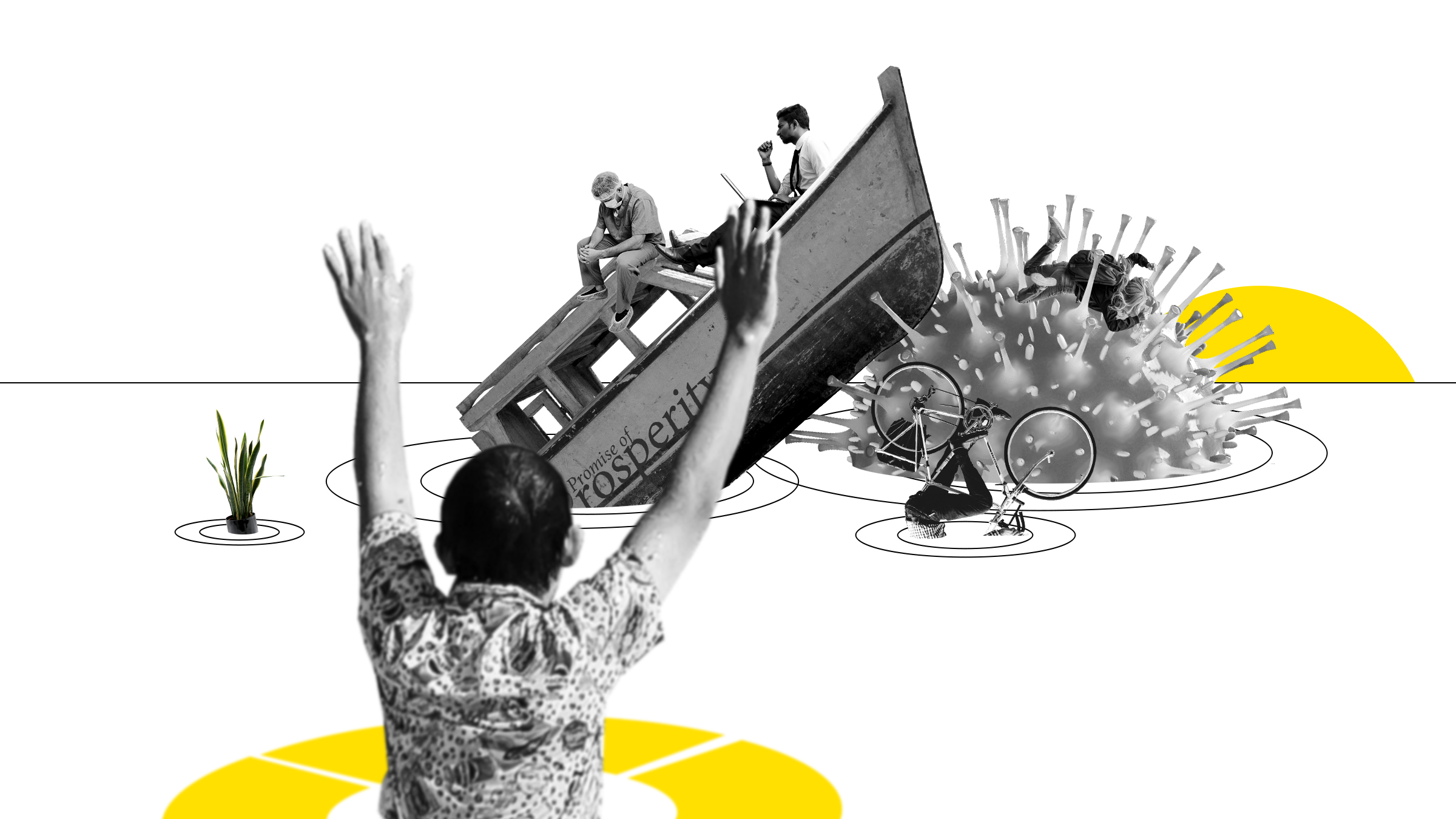



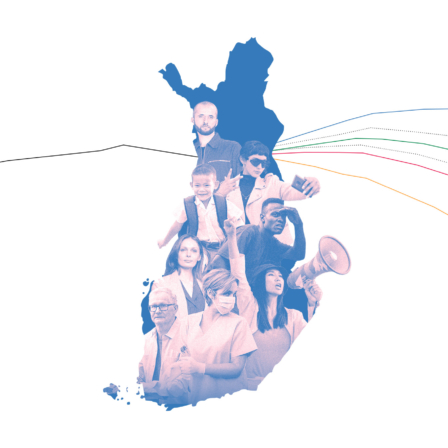
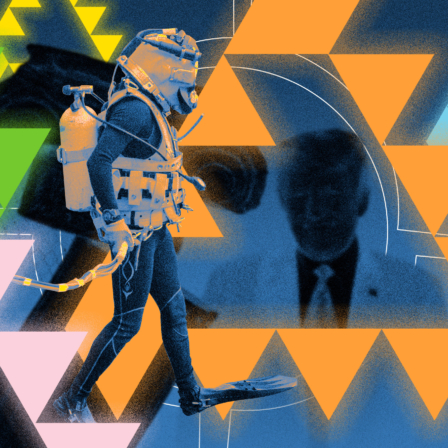
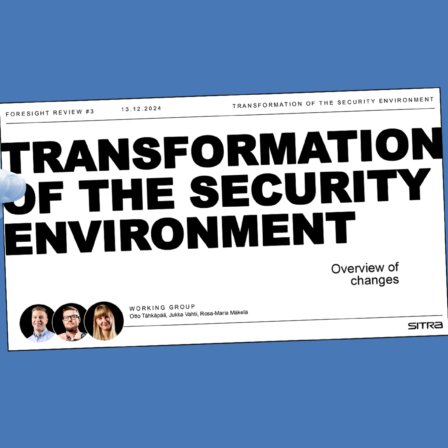
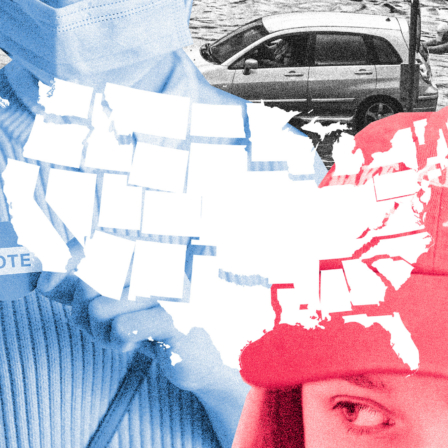

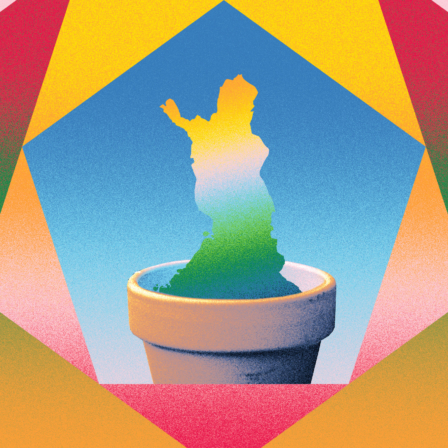

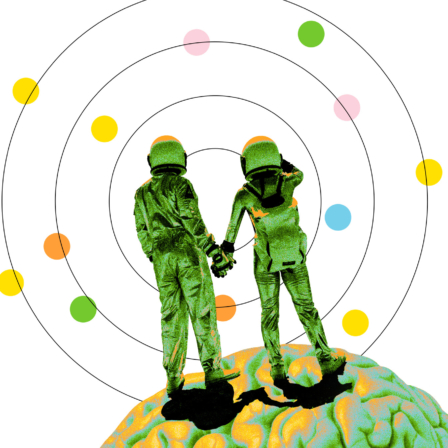



Recommended
Have some more.